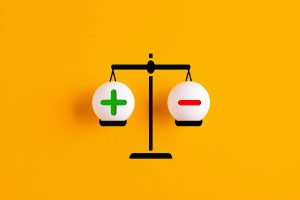Child maintenance is a critical aspect of ensuring the financial wellbeing of children following a separation or divorce. It is a legal and statutory responsibility and a vital source of support, helping to provide for a child’s needs, including essentials such as food, clothing, and housing. Here, we address some of the most common questions about child maintenance, offering a comprehensive guide for parents navigating this important issue.
What is Child Maintenance?
Child maintenance refers to regular financial payments made by one parent to the other to help cover the costs of raising their child. It ensures that children continue to receive financial support from both parents, even when they live in separate households. The payments aim to provide stability and maintain the child’s standard of living after a separation.
Who Pays Child Maintenance?
Typically, the parent who does not have day-to-day care of the child, known as the “non-resident parent” or “paying parent,” is responsible for making child maintenance payments. The parent with whom the child resides most of the time, referred to as the “receiving parent,” uses these funds to support the child’s needs.
How is the Amount Calculated?
The Child Maintenance Service (CMS) provides a standard formula to calculate payments. The calculation takes into account:
- Gross Weekly Income: This includes earnings from employment, self-employment, or pensions, before tax and National Insurance deductions.
- Number of Children: The amount increases with the number of children requiring support.
- Shared Care Arrangements: If the paying parent spends a significant number of nights caring for the child, the payment amount is adjusted accordingly.
- Other Dependents: If the paying parent has other children in their household or whom they are financially supporting, this is factored into the calculation.
The CMS offers an online calculator to help parents estimate the appropriate payment amount based on their specific circumstances which can be found here.
Can Parents Agree on Maintenance Without the CMS?
Yes, parents can opt for a “family-based arrangement,” which is a private agreement about child maintenance. This approach can be more flexible and tailored to the family’s unique situation. To ensure clarity and avoid disputes, it is recommended to document the agreement in writing. However, if disputes arise or the arrangement breaks down, the CMS can step in to facilitate or enforce payments.
What if the Paying Parent’s Circumstances Change?
Life circumstances can change, and it is important for parents to communicate and address any significant changes promptly. For instance:
- Income Changes: If the paying parent’s income increases or decreases substantially, the maintenance amount may need to be recalculated.
- Employment Status: A change in employment, such as redundancy or retirement, could also impact payments.
- Health Issues: If a parent’s ability to work or meet financial obligations is affected by health problems, this should be reported to the CMS or addressed with the other parent.
What Happens if Payments are Missed?
Missed payments can cause financial strain for the receiving parent and the child. If the paying parent fails to meet their obligations, the CMS has enforcement powers to ensure compliance. This may include:
- Deducting money directly from the paying parent’s wages.
- Taking funds from their bank account.
- Applying to the courts for further enforcement measures, such as seizing assets.
Does Maintenance Stop at a Certain Age?
Child maintenance generally continues until the child turns 16. However, payments can extend until the child is 20 if they remain in full-time education (up to A-levels or equivalent). Maintenance may also stop earlier if the child:
- Marries or enters a civil partnership.
- Leaves full-time education and starts working.
- Moves out and becomes financially independent.
Why is Child Maintenance Important?
Child maintenance is essential for ensuring children’s financial security and overall wellbeing. It helps provide:
- Basic Necessities: Food, clothing, and shelter.
- Education Support: School-related expenses, including uniforms and supplies.
- Stability: A sense of normalcy and continuity despite changes in family dynamics.
Failing to provide adequate maintenance can lead to financial hardship for the child and the receiving parent. It also underscores the importance of both parents’ roles in supporting their child’s future.
Seek Expert Advice
Navigating child maintenance can be complex, particularly in cases involving disputes or unique family circumstances. Consulting a family law solicitor can provide clarity and tailored advice to ensure the best outcome for your child. We can also assist in drafting agreements and addressing disputes effectively.
If you have questions about child maintenance or need professional assistance, don’t hesitate to contact us using the links below.




